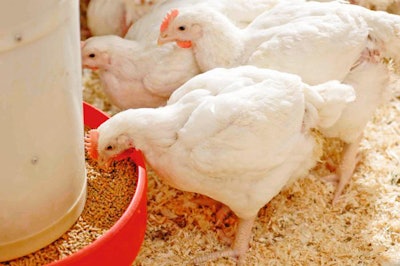
The market for Norwegian fishmeal is experiencing a sudden surge in demand — at home as the result of the COVID-19 pandemic, as well as from China.
Last week, Norway’s food safety agency (Mattilsynet) announced an exemption to allow fishmeal to be included in feeds for poultry and pigs.
Background to the announcement is a shortage of feed ingredients containing amino acids, which are essential for high-quality livestock and poultry feeds. The shortfall has arisen from the novel coronavirus (COVID-19) pandemic. This has led to a dramatic reduction in imports of these vital raw materials for animal nutrition.
Feed manufacturers will need to apply to Mattilsynet for authorization to use the products. For their application to be successful, firms will have to provide documentary evidence of a shortage in amino acids, and of a separate line for the production of feeds for ruminants.
The agency says the inclusion of fish meal in diets for poultry and pigs will only be temporary.
In the European Union (EU), fishmeal has been banned from inclusion in feeds for ruminants since 2001. This restriction was introduced simultaneously with a ban on the use of meat and bone meal in diets for all animals farmed for food production — including fish. The moves were seen as the most effective measures to reduce the risk of diseases such as bovine spongiform encephalopathy (BSE), according to the European Food Safety Authority (EFSA). Although their role in BSE transmission was minimal or nonexistent, fish products were banned from ruminant feed to remove any possible risk.
Norway is not a member of the EU, and continued use fishmeal in ruminant feed until 2010.
China allows importation of Norwegian fishmeal and oils
In March, Chinese authorities announced the resumption of imports of fishmeal and fish oil from Norway. According to the Norwegian government, discussions with China have been going on for three years to reopen this market, which has been closed since 2011.
On the list from China’s General Administration of Customs are 27 Norwegian companies now approved for export to China. Approval takes immediate effect, and remains valid for five years. Norwegian companies wishing to take advantage of the reopening of the market will need a license from the Chinese agriculture ministry.
Last year, Norway exported 115,000 metric tons of fishmeal and fish oils for purposes other than human consumption. This trade is valued at an estimated NOK1.5 billion (US$142 million).
China is the the largest market for seafood, and the top producer of farmed fish, according to fisheries and seafood minister, Odd Emil Ingebrigtsen.
While welcoming the resumption of trade with China, the minister expressed some concern about the impact on demand.
“In the short term, the coronavirus situation means that fishmeal and fish oil are needed here at home for feed production because the industry needs feed,” he said. “I assume that industry players will take seriously the need to ensure adequate supplies for domestic markets.”











